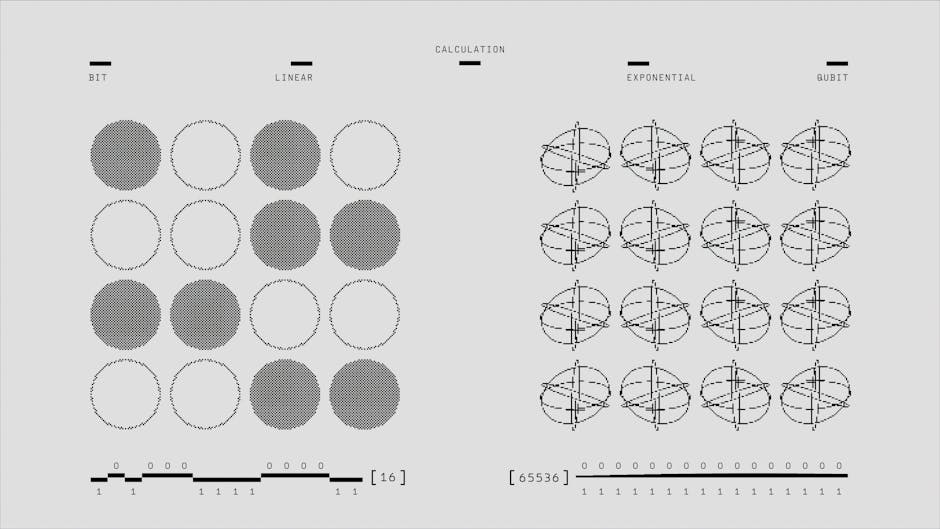Quantum computing is rapidly emerging as the most transformative force in the world of tech and innovation, promising to unlock solutions to problems once thought unsolvable. At InnExo, where next-level innovation starts, understanding the quantum revolution is essential for anyone seeking to stay ahead in the digital era. This comprehensive guide explores what quantum computing is, how it works, its real-world applications, and why it’s set to redefine the boundaries of technology and industry.
What Is Quantum Computing?

Photo by Markus Winkler on Pexels
Quantum computing represents a radical departure from traditional computing. While classical computers rely on bits that exist as either a 0 or 1, quantum computers use qubits, which can exist in multiple states simultaneously thanks to the principles of superposition and entanglement. This unique capability allows quantum computers to process and analyze vast amounts of data at speeds unimaginable with today’s machines.
The foundation of quantum computing lies in quantum mechanics—a branch of physics that describes the behavior of particles at the smallest scales. Qubits, the building blocks of quantum computers, leverage these quantum effects to perform complex calculations by exploring many possible solutions at once. This is a game-changer for fields that require immense computational power, such as cryptography, materials science, and artificial intelligence.
Unlike classical computers, which solve problems by working through each possibility one at a time, quantum computers can tackle many possibilities simultaneously. As a result, they have the potential to solve problems in seconds that would take classical supercomputers thousands of years.
The Principles Behind Quantum Computing

Photo by Google DeepMind on Pexels
To appreciate the impact of quantum computing, it’s important to understand its core principles:
- Superposition: Qubits can exist in multiple states at once, enabling quantum computers to process complex data sets more efficiently.
- Entanglement: When qubits become entangled, the state of one instantly influences the state of another, regardless of distance. This property allows for highly efficient communication and computation.
- Quantum Interference: Quantum computers use interference to amplify correct paths to a solution while canceling out the wrong ones.
- Decoherence: Quantum systems are sensitive to their environment, and maintaining coherence is one of the biggest challenges in building scalable quantum computers.
These principles are not just theoretical; they are already being harnessed in experimental quantum devices. The challenge lies in scaling up these systems while maintaining stability and reliability.
Quantum Computing vs. Classical Computing

Photo by Google DeepMind on Pexels
The comparison between quantum and classical computing is not simply about speed—it’s about a fundamental shift in approach. Classical computers are excellent at handling straightforward, linear tasks, but they struggle with problems involving massive numbers of variables or requiring simultaneous consideration of multiple outcomes.
Quantum computers excel at:
- Factoring large numbers (critical for cryptography)
- Simulating molecular interactions for drug discovery
- Optimizing complex logistics networks
- Solving advanced machine learning problems
However, quantum computers are not intended to replace classical computers. Instead, they will complement them, handling specific tasks that are currently infeasible with traditional technology. The future is likely to be a hybrid one, where classical and quantum systems work together to solve the world’s most pressing challenges.
Real-World Applications of Quantum Computing

Photo by Christina Morillo on Pexels
Quantum computing is moving from theory to practice, with industries across the globe exploring its transformative potential. Here are some of the most promising applications:
- Finance: Quantum computers can optimize investment portfolios, assess risk, and detect fraud by processing massive datasets and simulating countless market scenarios in real time.
- Healthcare: Quantum simulations can model complex biological systems, accelerating drug discovery and enabling personalized medicine.
- Logistics: Quantum algorithms can optimize supply chains and delivery routes, saving time and resources for global businesses.
- Materials Science: Quantum computers can simulate the properties of new materials at the atomic level, leading to breakthroughs in energy, manufacturing, and electronics.
- Cybersecurity: While quantum computing poses a threat to current encryption methods, it also enables the development of quantum-safe cryptography, ensuring data remains secure in a quantum-powered world.
- Education: Quantum education platforms are making the technology accessible to students and researchers, fostering a new generation of quantum scientists and engineers.
These applications are just the beginning. As quantum technology matures, its impact will extend to virtually every sector, driving innovation at an unprecedented scale.
Quantum Computing in Industry: Who’s Leading the Charge?

Photo by Kampus Production on Pexels
Major technology companies, startups, and research institutions are racing to develop practical quantum computers. Companies like IBM, Google, and Microsoft have already built prototype quantum devices and are offering cloud-based quantum computing platforms for experimentation and development.
The financial industry is emerging as one of the earliest adopters of quantum computing, leveraging its power to revolutionize risk management, portfolio optimization, and fraud detection. Healthcare, logistics, and materials science are also seeing rapid adoption, with organizations partnering with quantum technology providers to explore new solutions and gain a competitive edge.
Governments are investing heavily in quantum research, recognizing its strategic importance. Public-private partnerships and international collaborations are fueling advancements, with a focus on education, workforce development, and building a robust quantum economy.
Despite the excitement, significant challenges remain. Building scalable, fault-tolerant quantum computers requires overcoming obstacles in hardware, software, and error correction. However, the pace of progress is accelerating, and experts believe that commercially useful quantum computing technologies will become available within the next few years.
The Roadmap for Quantum Computing: What’s Next?

Photo by Artem Podrez on Pexels
The journey to practical quantum computing is marked by several key trends and milestones:
- Logical Qubits: Ongoing experiments aim to create stable, error-corrected logical qubits, which are essential for reliable quantum computation.
- Specialized Hardware and Software: The industry is moving toward specialized quantum devices and software tailored for specific applications, rather than universal quantum computers.
- Networking Quantum Devices: Connecting multiple quantum devices (NISQ devices) is enabling more powerful and flexible quantum systems.
- Software Abstraction: New layers of software are making quantum programming more accessible, allowing developers to harness quantum power without deep knowledge of quantum mechanics.
- Workforce Development: Education and training programs are expanding to prepare the next generation of quantum professionals.
- Improved Physical Qubits: Research is focused on developing novel qubit technologies that are more stable and scalable.
These trends are shaping the future of quantum computing, guiding investments and research priorities. The next few years will be critical as the technology moves from the lab to real-world deployment.
Preparing for the Quantum Future: What Businesses and Innovators Need to Know

Photo by Google DeepMind on Pexels
As quantum computing approaches commercial viability, organizations must begin preparing for its impact. Here’s how to get ready:
- Stay Informed: Keep up with the latest developments in quantum research, applications, and standards.
- Invest in Education: Build quantum literacy within your organization through training and partnerships with academic institutions.
- Experiment Early: Leverage cloud-based quantum platforms to explore potential applications and develop proof-of-concept projects.
- Assess Risks and Opportunities: Evaluate how quantum computing could disrupt your industry and identify areas where it can provide a competitive advantage.
- Plan for Security: Begin transitioning to quantum-safe cryptography to protect sensitive data against future quantum threats.
Quantum readiness is not just about technology—it’s about mindset. Embracing experimentation, collaboration, and continuous learning will position organizations to lead in the quantum era.
Conclusion: Quantum Computing and the Future of Tech & Innovation

Photo by Google DeepMind on Pexels
Quantum computing stands at the forefront of next-level innovation, poised to redefine what’s possible in technology, business, and society. Its unique capabilities promise breakthroughs in fields ranging from finance and healthcare to logistics and cybersecurity. While challenges remain, the momentum is undeniable, and the quantum revolution is well underway.
At InnExo, we believe that understanding and embracing quantum computing is essential for anyone aiming to thrive in a rapidly evolving digital landscape. By staying informed, investing in education, and preparing for the opportunities and risks ahead, innovators and organizations can be part of the next great leap in tech and innovation.
Sources
- https://azure.microsoft.com/en-us/blog/quantum/2025/01/14/2025-the-year-to-become-quantum-ready/
- https://thequantuminsider.com/2025/05/16/quantum-computing-roadmaps-a-look-at-the-maps-and-predictions-of-major-quantum-players/
- https://www.moodys.com/web/en/us/insights/quantum/quantum-computings-six-most-important-trends-for-2025.html
- https://www.weforum.org/stories/2025/04/quantum-computing-benefit-businesses/
- https://www.spinquanta.com/newsDetail/70ffea4b-9ce5-43bd-9d0b-c4b9676d79e6





